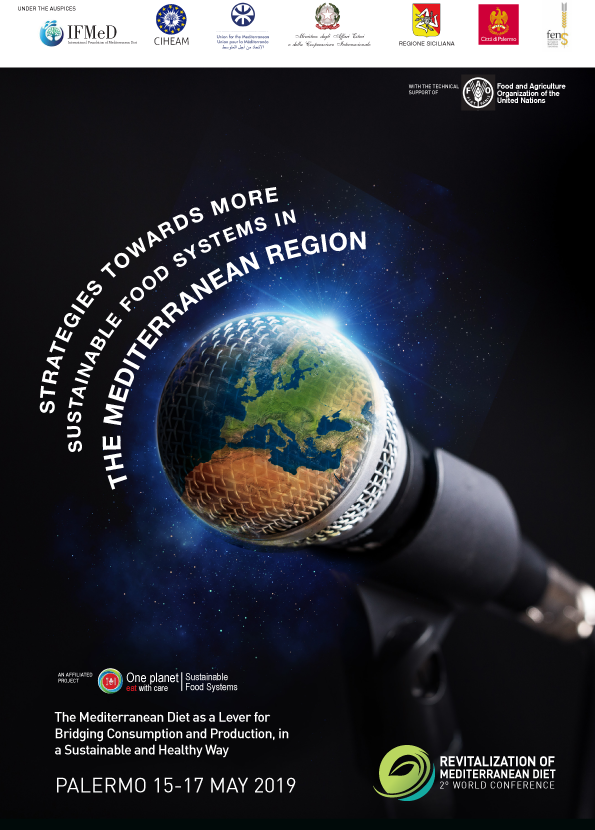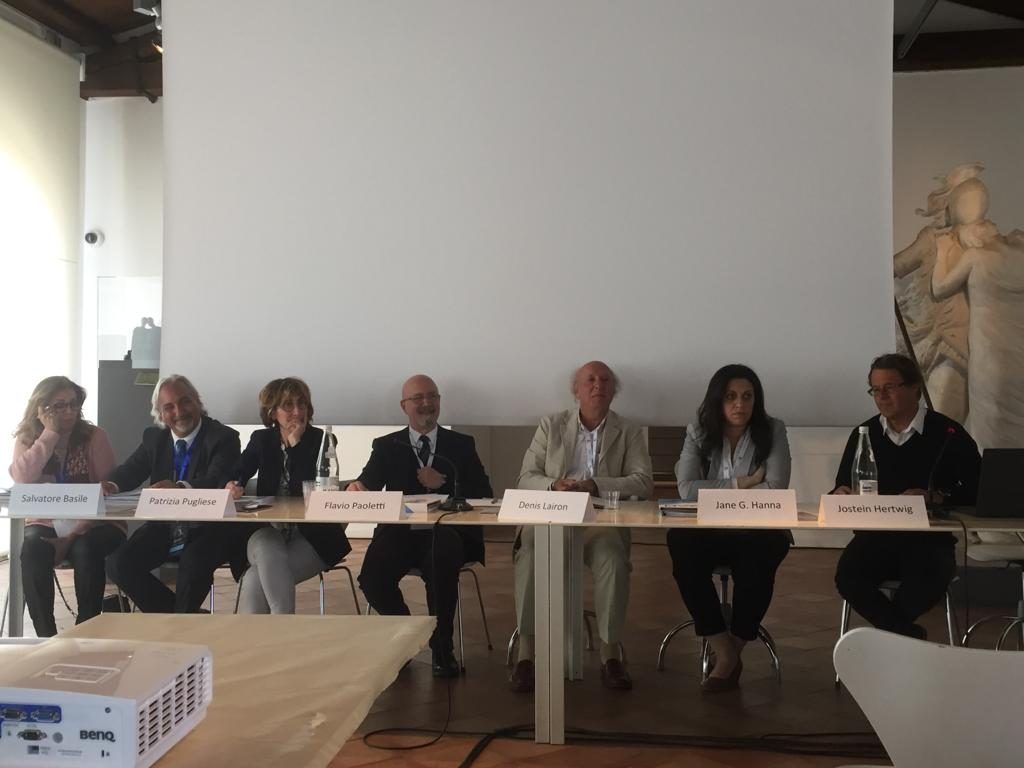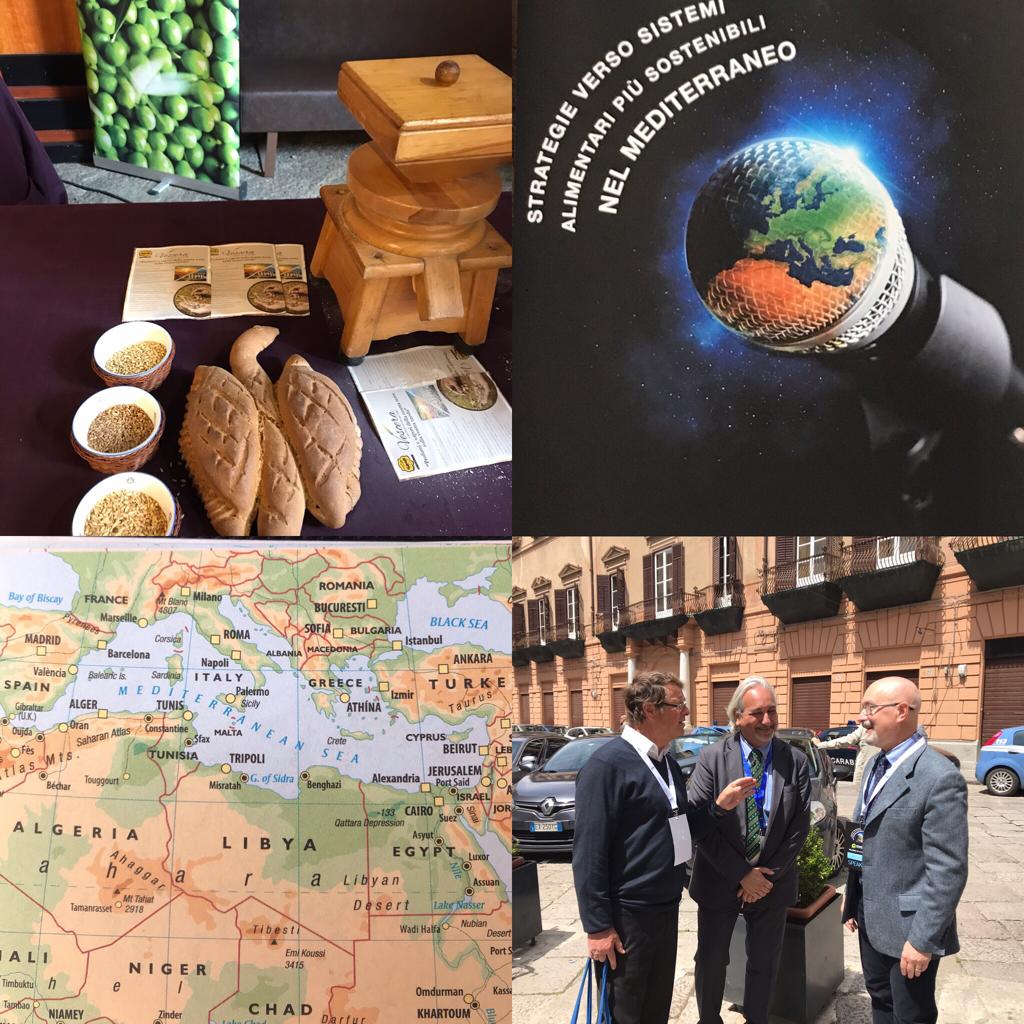The Second World Conference, by enhancing innovative inter-sectorial and multi-stakeholder dialogues linking food consumption to food production, towards more sustainable food systems in the Mediterranean area, will provide a broader multi perspective understanding of the multiplex sustainable benefits of the Mediterranean diet model, within the diversity of the Mediterranean food cultures and food systems, in order to revitalize it


Session 10
The Challenge of Organic Food Systems in the Mediterranean
Session 10
The Challenge of Organic Food Systems in the Mediterranean
Co-Chaired by Denis Lairon, Aix-Marseille University and OFSP
and Flavio Paoletti, CREA-Research Centre for Food and Nutrition and OFSP
Food security, sustainability and quality becomes a stringent topic in the Mediterranean area. For lots of these countries, food security is not achieved and highly relies on food importations, while the coming pressure of climate change is expected to make more difficult agricultural production and environmental protection in the area. In addition, related to ongoing nutritional transition, the rates of overweight and obesity are presently among the highest in most Mediterranean countries. This is accompanied with certain levels of nutrient deficiencies.
Organic agriculture, based on agro-ecological principles, has spread since the mid 20th century to nearly all regions in the world and the organic food market is growing rapidly worldwide. One of the underlying determinants of organic agriculture and food production is the link between sustainability and health. Various studies have shown the contribution of organic agriculture to global sustainability issues. A beneficial effect of organic agriculture on human health can be inferred by the prohibition of the use of synthetic pesticides: recent studies show a markedly lower prevalence of overweight and obesity and some pathologies in organic food consumers. Moreover, it has been shown that present regular organic consumers consume more fruit, vegetables, nuts, legumes and dietary fibre, and less meat and dairy products, as in the traditional and recommended Mediterranean Diet.
In the Mediterranean context, organic agriculture seems to be a promising way to develop local food production in a sustainable way by achieving local, seasonal, nutritive and safe food production for inhabitants of these countries, with some exports when suitable.
Thus, combining in a Mediterranean sustainable food system both the plant-based Mediterranean dietary pattern and lifestyle, and the organic production and consumption ways and ethics is expected to provide sounded sustainable solutions for the present and future.
The Organic Food System Programme (OFSP) (www.organicfoodsystem.net) is an international programme that encompasses academic and practical implementation. OFSP was initiated in 2014 and was officially launched in February 2016. The OFSP is conceived as a holistic global food system model approach to production and consumption patterns. The scope is to identify, understand and describe transformation processes towards sustainable food systems and make lessons learned available in a globally systematized and contextually applicable way. OFSP uses the organic food system as a model to understand drivers of sustainable food consumption and production and to link this to real-world examples.
The OFSP contributes to the 10-Year Framework of Programmes of the joint FAO-UNEP “Sustainable Food System Programme (SFSP)”. From February 2017 the project “Organic Food System Programme: organic food systems as models and living laboratories for transformation processes towards sustainable food systems” has been endorsed as one of the eight core initiatives of the SFSP.
OFSP and Mediterranean Organic Agriculture Network with others could be the appropriate platforms to collectively handle such a challenge and jointly develop strategies and actions in that direction.
Objective: To provide scientific evidences and real-world examples about how the organic food system can contribute to the sustainability of food systems in the Mediterranean.
Speakers:
Jostein Hertwig, Organic Food System Programme (OFSP)
Patrizia Pugliese, Mediterranean Organic Agriculture Network (MOAN)
Salvatore Basile, International Network of Eco-Regions (INNER)
Samia Maamer, Ministère de l’Agriculture, des Ressources Hydrauliques et de la Péche, Tunisia
Jane G. Hanna, Heliopolis University for Sustainable Development, Egypt
Denis Lairon, Aix-Marseille University, France

